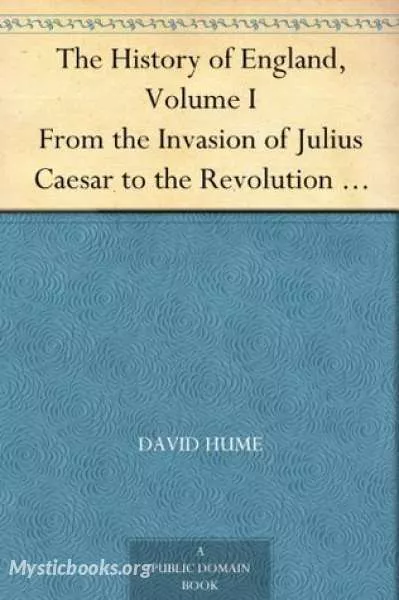
History of England from the Invasion of Julius Caesar to the Revolution of 1688, Volume 1F
by David Hume
'History of England from the Invasion of Julius Caesar to the Revolution of 1688, Volume 1F' Summary
He wrote of the Revolution: "By deciding many important questions in favour of liberty, and still more, by that great precedent of deposing one king, and establishing a new family, it gave such an ascendent to popular principles, as has put the nature of the English Constitution beyond all controversy". Thus Hume is at odds with those who argue that the British Constitution is entirely evolutionary, and did not emerge from a revolution, just like the later American and French Constitutions, and the earlier Dutch Constitution.
The source of this antinomian interpretation of British freedom can be traced in Hume's account of the revolutionary debates themselves. William of Orange had been invited to invade by a coalition of English Whigs and Tories. To placate the latter's maxim that "the throne was never vacant", or in modern parlance the monarch never dies, the fiction was agreed that King James would be said to have abdicated. It fell to the Scottish Parliamentary Convention, meeting a month after the English one: "in a bold and decisive vote", to declare "that king James, by his maladministration, and his abuse of power, had forfeited all title to the crown". Hume wanted to present the UK as having a modern constitution. He did not see it as something that stretched back seamlessly to Magna Carta or the laws of King Alfred.
The narrative ends with a parliamentary convention annexing to the settlement "a declaration of rights, where all the points, which had, of late years, been disputed between king and people, were finally determined; and the powers of the royal prerogative were more narrowly circumscribed and more exactly defined, than in any former period of the English government". In fact Britain has two declarations of right from this period. The Bill of Rights is (or was) the basic law of England, the Claim of Right that for Scotland.
There are important differences between these little studied declarations. Where the Bill of Rights states that the King cannot make laws without the consent of Parliament, the Claim of Right says that all assertions of a right to rule above the law are themselves against the law. The Bill of Rights was inspired by John Locke. Behind the Claim of Right can be detected the guiding hand of James Dalrymple, 1st Viscount of Stair 1619–1695. Hume studied law as a student at Edinburgh. He implies that he neglected this study. This must be taken with a pinch of salt. He may have wanted to avoid giving the lay reader the impression that he had written a history just for lawyers like William Blackstone. What is certain is that he names two of the founders of Roman Dutch law, Johannes Voet and Arnold Vinnius, in the same breath as Cicero and Virgil. Cicero was, of course, a lawyer. The standard work for a Scottish law student to study was, then as now, "Stair's Institutions of the laws of Scotland".
Hume names neither of the unamended constitutions of 1689. He wanted a new constitution for the United Kingdom to flesh out these outline declarations. He set out his proposals in the essay Idea of a Perfect Commonwealth, which is a reworking of The Commonwealth of Oceana by the 17th-century Rutland visionary James Harrington. Leaving the extent of the Commonwealth and the location of its capital undecided, Hume's highly devolved scheme was "to have all the advantages both of a great and a little Commonwealth". In some ways it resembles the model of Presbyterian church government. Hume was no theorist of an unwritten constitution.
Book Details
Language
EnglishOriginal Language
EnglishPublished In
1754Authors
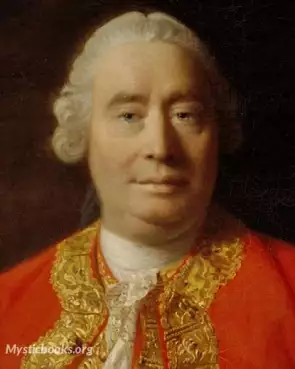
David Hume
Scotland
David Hume was a Scottish Enlightenment philosopher, historian, economist, librarian and essayist, who is best known today for his highly influential system of philosophical empiricism, scepticism, an...
Books by David HumeDownload eBooks
Listen/Download Audiobook
- Select Speed
Related books

Chronicles of Canada Volume 01 - The Dawn of Canadian History: A Chronicle of Aboriginal Canada by Stephen Leacock
This book describes Canada from the beginning of existence to its first European discoverers and includes a brief history of the aboriginal people. Th...
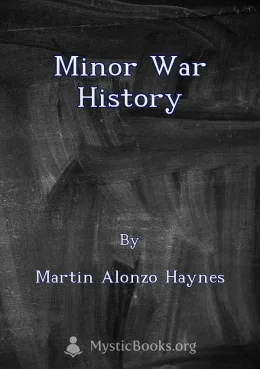
Minor War History by Martin Alonzo Haynes
This book, composed of personal letters written by a Civil War soldier to his future wife, offers a unique glimpse into the daily life of a soldier du...
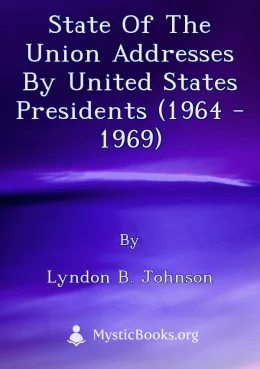
State of the Union Addresses by United States Presidents (1964 - 1969) by Lyndon B. Johnson
This book presents a collection of State of the Union addresses delivered by President Lyndon B. Johnson between 1964 and 1969. It provides a historic...

Warren Hastings by Thomas Babington Macaulay
This essay, originally published in the Edinburgh Review in 1841, is a critical examination of Warren Hastings, the first Governor-General of Bengal....

Sowjet-Rußland im Umbau by Fritz Schotthöfer
In 'Sowjet-Rußland im Umbau', Fritz Schotthöfer, a journalist, provides an insightful account of his observations during a journey through Russia in 1...
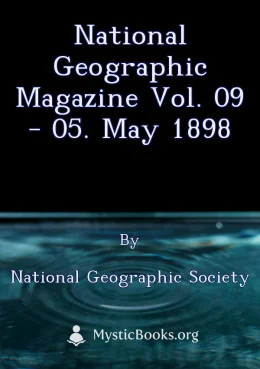
National Geographic Magazine Vol. 09 - 05. May 1898 by National Geographic Society
This book is a comprehensive overview of Cuba, published by the National Geographic Society in 1898. It includes articles on the island's geography, h...

National Geographic Magazine Vol. 09 - 01. January 1898 by National Geographic Society
This volume of the National Geographic Magazine presents a diverse range of articles on various topics related to geography, natural resources, and cu...

On War (Volume 1) by Carl von Clausewitz
Carl von Clausewitz's *On War* is a seminal work on military strategy, written by a Prussian military theorist and officer who served in the Napoleoni...

Europe and Elsewhere by Mark Twain
'Europe and Elsewhere' offers an intriguing collection of articles and essays penned by the renowned Mark Twain, drawn from his travels and experience...
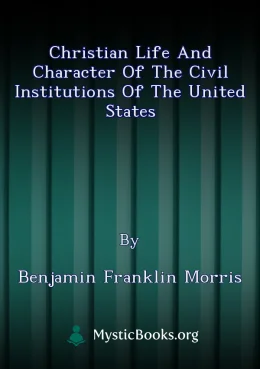
Christian Life and Character of the Civil Institutions of the United States by Benjamin Franklin Morris
This book examines the relationship between Christian principles and the foundation of American civil institutions. Benjamin Franklin Morris delves in...
Reviews for History of England from the Invasion of Julius Caesar to the Revolution of 1688, Volume 1F
No reviews posted or approved, yet...